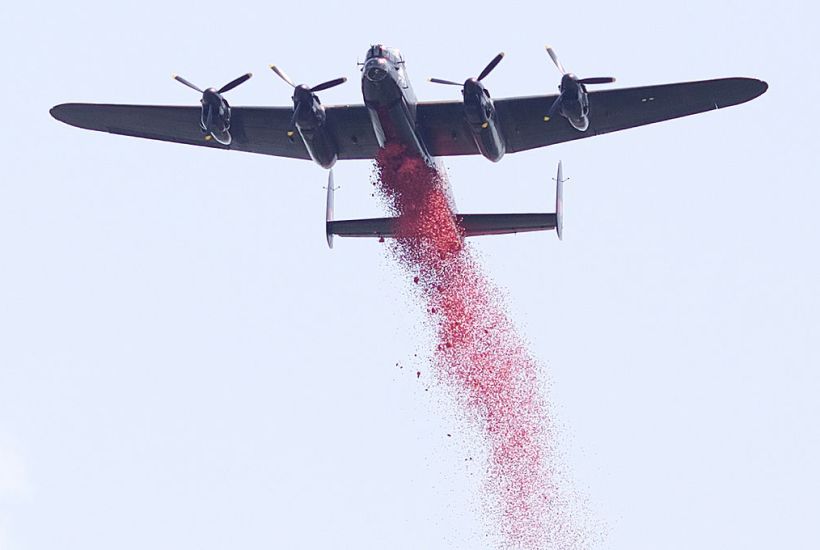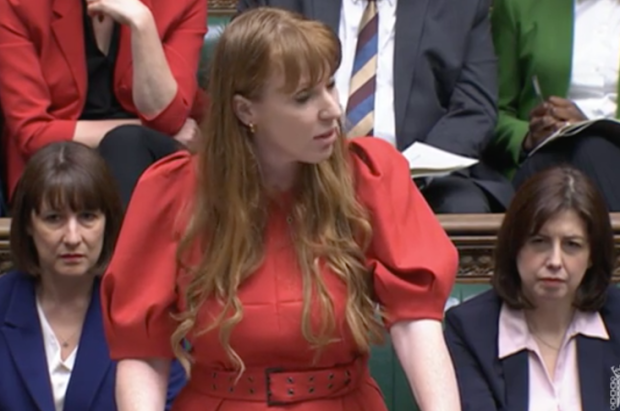Will the heroic members of Bomber Command, who played such a vital role for Britain during the Second World War, finally get the recognition they deserve? In recent years, there has been growing pressure on Whitehall to strike a campaign medal for the RAF crews who fought during the conflict, thereby giving them the special recognition they were denied in 1946. But even if it is done with the best of intentions, is a unique award for these men – who were undoubtedly heroes – really such a wise idea, or could it set a difficult precedent?
The drive to award medals was given a new impetus last week when 99-year-old George ‘Johnny’ Johnson, the last surviving crewman from the legendary Dambusters raid of 1943, voiced his support for an award to remedy the slight done to him and his comrades. Squadron Leader Johnson made his intervention at the unveiling of his portrait as part of an appeal for a veterans’ charity. The artist who produced the work, Dai Llywelyn Hall, was more outspoken about the alleged unfairness:
‘None of Bomber Command doing Churchill’s dirty work were properly recognised with a medal’
Crude politics is said to have been behind this omission because of the bitter controversy over the strategic bombing offensive against Germany, epitomised by the firestorm that engulfed Dresden in February 1945, causing the deaths of 25,000 civilians. According to this argument, the men of Bomber Command had to pay the price for official embarrassment over the aerial assault on the Reich, even though this policy played a vital role in breaking the Nazi war machine and winning the war.
As the author of several books on the wartime RAF, including an in-depth history of the mighty Avro Lancaster which was instrumental in the effectiveness of the offensive, there is no doubt in my mind that the members of Bomber Command were heroes. They had one of the toughest jobs of the war and they executed it magnificently. Flying over Germany, night after night, in the face of lethal flak and fighter defences, they showed unbelievable courage. Their chances of survival on a full tour of 30 sorties were far lower than those of British soldiers on the western front during the First World War. Of the 125,000 men who served in Bomber Command aircrews, 55,573 were killed in action, a 44 per cent death rate.
The case for a medal seems irrefutable. But the question is not that simple. Strength of sentiment does not necessarily justify the demand. It is all too easy to paint the politicians and officials of 1946 as a bunch of dishonourable hypocrites who lacked the wisdom and compassion of today’s campaigners. But if we delve into the history of the time, we can see how the decision not to award a Bomber Command medal was rational and consistent.
Two principles have long prevailed in the award of military medals, which were effectively settled by the Whitehall committee on honours and decorations, subject to the approval of the Government and the Sovereign. One is that they should be handed out sparingly to retain their distinction. In the words of the diplomat Sir John Holmes, who conducted a review of medal policy in 2012, the British approach is ‘deliberately parsimonious’.
The second is that campaign medals should be awarded only for broad geographic theatres of war, not for individual operations, battles or commands. That is why there is no special medal for D-Day or Dunkirk or the Special Operations Executive or the Eighth Army. Nor, in the context of the RAF, is there one for Fighter Command, which won the Battle of Britain or Training Command which supplied the personnel or Transport Command which supplied the planes.
Medals have never been awarded for separate units in the air force, army or navy, a policy that had nothing to do with political sensitivities about wartime strategy. Indeed, Clement Attlee, as prime minister in 1946, was hardly likely to have turned down a Bomber Command medal because of reservations about the aerial bombardment, given that, as Churchill’s deputy in the wartime coalition, he was the one who formally approved the attack on Dresden.
If the 1946 decision is overturned in a wave of emotional modernist triumphalism, then an invidious precedent would be set. A new series of anomalies would be opened and other claims would follow. Why not a medal for Coastal Command, which lost over 10,000 men in the war and played a vital part in the victory of the Battle of the Atlantic? Or the Fleet Air Arm, the Royal Navy’s air wing which saw action all over the globe? The list of further deserving causes is almost endless. Indeed, for more than a decade there has been a campaign to award a special medal for women who worked in the munitions factories during both world wars.
What’s more, it is untrue that Bomber Command crews went unrecognised. In addition to the War Medal, they could be eligible for several campaign and service medals; the 1939-45 Star, the cherished Aircrew Europe Star, for example, presented to those who undertook at least two months operational flying from UK bases up to June 1944; or the France and Germany Star, for operations over the continent in the last year of the war. In 2012, these brave men were also given the right to wear a Bomber Command clasp on their ribbon, similar to the Battle of Britain clasp for Fighter Command pilots. Recognition has further been made in other ways, like the creation of the superb, poignant Bomber Command memorial at Hyde Park, or the majestic International Bomber Command Centre in Lincolnshire.
In 1944, Churchill admitted the dilemmas in the award of decorations. ‘A medal glitters but it also casts a shadow. The task of drawing up regulations for such awards is one which does not admit a perfect solution,’ he said. Churchill, himself a brave soldier, knew both the realities of war and the heavy responsibilities for waging it. Many of those today who signal their virtue over the award of medals would never have the guts to fight for their country or take the agonising decisions necessary for victory.
Got something to add? Join the discussion and comment below.
Get 10 issues for just $10
Subscribe to The Spectator Australia today for the next 10 magazine issues, plus full online access, for just $10.
Leo McKinstry's book Lancaster: the Second World War's Greatest Bomber is published by John Murray



















Comments
Don't miss out
Join the conversation with other Spectator Australia readers. Subscribe to leave a comment.
SUBSCRIBEAlready a subscriber? Log in